Article title
A number of new restrictions against the spread of coronavirus will come into force from Monday 1 March. A ban on leaving the district, closed nurseries, respirator and at work and outdoors...
Updated 28/02/2021 including documents available for download below:
- model affidavit
- form for travel outside work
- employer's certificate for multiple trips to work
+ questions and answers
You will be prohibited from leaving the district except to travel to work or to a doctor's appointment. Outdoor activities and sports will no longer be allowed within the municipality. Some other shops and services, primary and nursery schools will close. The rules for wearing masks or respirators are also changing.
Movement of people and assembly
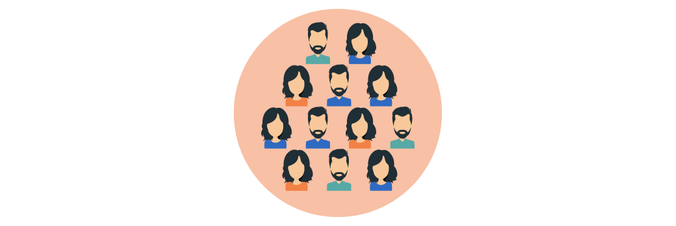
- From 1 March: no leaving the district in which one is resident or domiciled. Exceptions are made for essential reasons, such as travelling to work, to see a doctor or to care for children or animals, to attend to urgent official business, to attend a funeral, etc. Compliance with restrictions on movement will be randomly checked by the police, including travel by train or bus. The capital city of Prague is the only district.
- from 1 March: people can stay in their own cottage or chalet, but they must stay there continuously for three weeks, and only members of the same household can be together in the property
- from 1 March: for travel to work outside the district, for example, an employer's certificate will be needed, and for travel to doctors' appointments or offices outside the district, an affidavit or form with the place, time and destinationwill be required. Purchases will only be possible in the relevant district, and only for the necessary number of people.
- From 1 March: trips to the countryside and sports are allowed, but only within the municipality in which the person resides or is domiciled, not the entire district. Only members of the same household may be together. Prague and other subdivided cities are always one municipality, movement between districts is not restricted.
- from 1 March: visits to relatives are not allowed unless it is to provide essential needs or necessary care
- no night-time curfew between 9pm and 5am, except for travel to work, business, urgent travel (for protection of life, health, property), dog walking within 500 metres of home and travel back home
- between the hours of 5 am and 9 pm, only journeys to work, to purchase goods or services, to the doctor, to care for children or animals, to the countryside or for outdoor sportsare permitted within the municipality
- people must limit contact with persons other than household members to the extent necessary
- people may stay in public places in groups of no more than two, except for household members, colleagues in the same occupation or children and pupils in the provision of education. People must maintain a distance of at least 2 metres when interacting with other people, if possible.
- Employers must use teleworking where employees can carry it out in their own home due to the nature of the work and the operating conditions
- theatres, cinemas or concert halls remain closed to the public, and organisational and regime restrictions on persons attending rehearsals apply. Museums, galleries or monuments are closed
- weddings and funerals may take place with a maximum of 15 participants. For services, seated attendees are required to be two metres apart in the same row, and no more than 10 per cent of capacity may be filled. A ban on mass singing applies
- Thedistricts of Cheb, Sokolov and Trutnov are closed until 28 February: people residing or domiciled in the district may not leave the territory of the district, and other people may not enter, move or stay in the districts. Exceptions include travel to and from work or school, supplies, public transport, urgent business, necessary travel to the doctor or vet, travel to a wedding or funeral, etc. At district boundaries, the police check compliance with the measures, and people must prove the reason for using the exceptions.
Wearing a veil/respirator
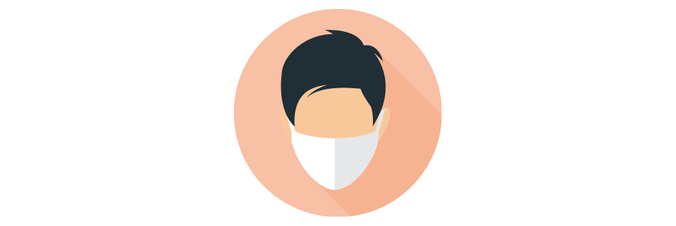
- Itis forbidden to move or stay without protection of the nose and mouth, which is a respirator or similar device (for example, some types of nano-muffs or scarves), meeting all technical conditions and requirements, including a filtration efficiency of at least 94% (for example, FFP2, KN95), as well as a medical face mask or similar device according to EN 14683+AC
- wearing a respirator or similar protection is compulsory in all indoor areas of buildings outside the residence or place of accommodation, as well as in publicly accessible places in the built-up area of the municipality. Outside the built-up area, in places where at least 2 persons are less than 2 metres apart at the same place and time, excluding household members.
- Arespirator or similar device is mandatory in the interior of shops, service establishments, health care facilities providing outpatient care, social service facilities, international airports, public transport, on the platform, in the shelter and waiting area of public transport, in motor vehicles (only if the passengers are not members of the same household)
- children from 2 to 15 years of age may wear the type of protection specified for indoor areas of buildings (i.e. for example a medical drape) also in other places mentioned in the previous paragraph
- theemployer must provide the employee with respirators or similar protection in sufficient numbers for each working shift. The exception is if the employee does not come into contact with other persons during working hours.
- in exceptional cases - where it is necessary for a pupil or student to be able to see the teacher's mouth while teaching - it is possible for the teacher to use a shield as respiratory protection, provided that he or she maintains a distance of at least two metres from the pupils or students
- there are anumber of exceptions to the obligation: for example, children under two years of age, children in a nursery school or playgroup, in a dormitory or youth hostel room, etc. do not have to wear a face shield. There are also exemptions for patients, social services clients, employees working in one place without another person present, people working in high temperatures, public transport drivers (unless they are in contact with passengers when checking in), judges, magistrates, prosecutors, etc., presenters and editors, sportsmen or exercisers. In addition, people with intellectual disabilities, autistic people and people whose mental abilities or current mental state do not allow compliance with the ban.
Shops and services
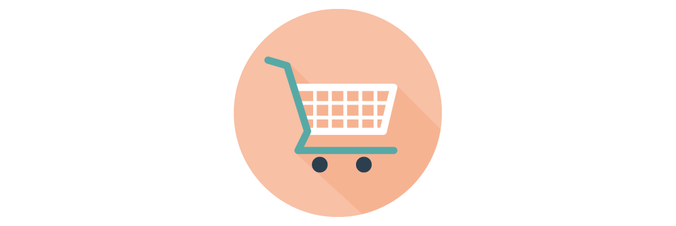
- Only basic shops and services can be open - grocery stores, drugstores, pharmacies, opticians, florists, newsagents, petrol stations, e-commerce outlets, taxi services, funeral services, unmanned car washes, phone and computer repair shops, feed, gardening and homeware shops
- as of 1 March, certain shops and services - children's clothing and shoe shops, stationery shops, laundries and dry cleaners, car repair and spare parts shops, textile and haberdashery shops, small pet shops, building contracting and removal shops, real estate brokerage and accountancy consultancy shops, repair and maintenance and installation of household machinery and equipment, locksmiths and gun and ammunition shops -must close
- shops shall not have more customers than one customer per 15 square metres of sales area. Customers should observe the two-metre spacing (the rule for entering shops and other establishments has a few exceptions: for those small ones under 15 square metres, the customer limit does not apply to a child under 15 accompanying an adult and to the assistance of a disabled person. For all other shops, children under six accompanied by an adult do not count towards the customer limit. For parents with pushchairs, the operator must not require the use of a shopping basket and the child in the pushchair must not be counted towards the passenger limit)
- shopping centres are prohibited from operating children's play areas and providing wireless internet access to the public. Catering facilities within shopping centres may only operate through a window.
- Thesale of goods in market stalls, market halls and mobile establishments is prohibited. Only those mobile outlets that provide food and drug sales in municipalities where it is not possible to purchase these goods from another outlet remain permitted
- barbers, hairdressers, manicures, pedicures, massages, beauty services and similar services are closed
- libraries can lend and return books via the circulation desk or by contactless checkout
- as of 1 March, the operation of spa and rehabilitation care is restricted again, and only spa and rehabilitation care which is at least partially covered by public health insurance can be provided
Sport
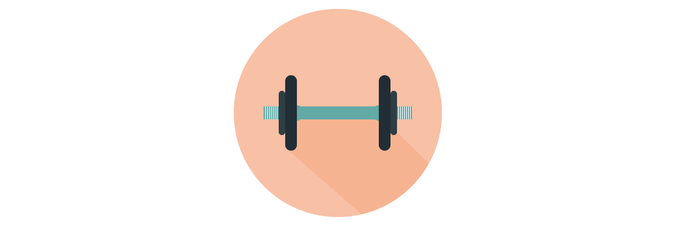
- theoperation and use of indoor and outdoor sports facilities (e.g. gymnasiums, playgrounds, ice rinks, courts, rings, bowling or billiard rooms, training facilities), dance studios, gyms and fitness centresare prohibited
- theoperation and use of artificial swimming pools (swimming pools, bathing pools, infant and toddler pools, paddling pools), wellness facilities including saunas, solariums and salt cavesare prohibited unless they are for the provision of health services
- ski areas must be closed and lifts and cable cars must not carry pedestrians other than skiers. Exceptions to this are operations for the provision of supplies, transport services or the needs of the Integrated Rescue System (police, fire brigade, rescue service, mountain service, etc.).
- professional sports competitions are allowed in a specific regime and without spectators, amateur competitions are prohibited. The Ministry of Health may lay down binding conditions for otherwise prohibited mass events "in the important national interest" or major sports matches or competitions.
- The Ministry has strongly advised operators to close playgrounds
Restaurants and hotels
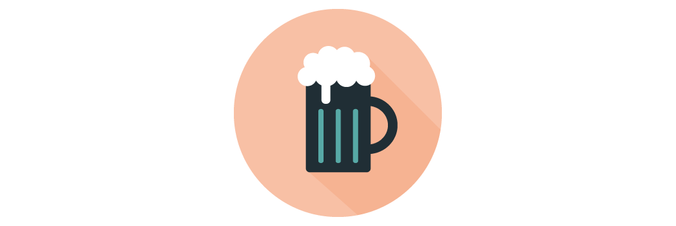
- Restaurants or cafes must be closed, only takeaways can operate, and the sale of alcohol for public consumption is prohibited
- hotels or guesthouses must be closed for tourist stays, only guests on business trips are allowed to stay if it is necessary for the performance of their employment, profession, business or other similar activity (the purpose must be proven before the accommodation starts by a written confirmation from the employer or client and the operator must request the confirmation and keep it for the entire duration of the stay)
- people who have been ordered to be isolated or quarantined and foreigners who have no other residence in the Czech Republic and who are authorised to enter and staymay be accommodated
Schools
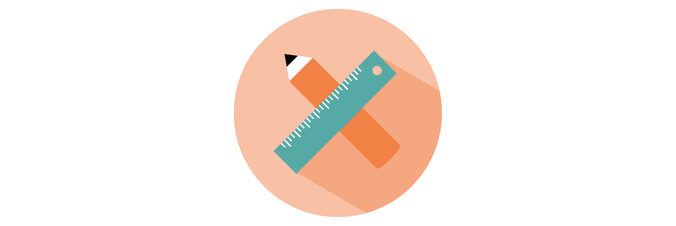
- from 1 March all types of schools will be closed, first and second grade pupils will also stop attending schools, special schools will be closed
- from 1 March, all kindergartens, playgroups and other facilities for pre-school children are closed
- only primary schools, kindergartens and children's groups at health care facilities and for children of members of the integrated rescue system can remain open
- Distance learning is available in all types of primary, secondary, vocational and higher education institutions. Only individual consultations will be possible.
- Students can stay in boarding schools and dormitories
- outdoor schoolsare prohibited
Authorities
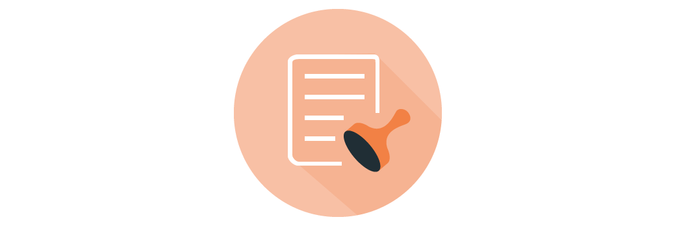
- offices can now operate without restrictions on standard office hours
- authorities prefer written, electronic or telephone contact to face-to-face contact where possible, but the possibility of face-to-face contact must be maintained
- expired driving licences are extended so that they do not have to be replaced. The condition is that the document has expired at the time when the state of emergency was in force in the Czech Republic (i.e. from 5 October 2020). The measure is valid for the duration of the state of emergency.
Health and social facilities
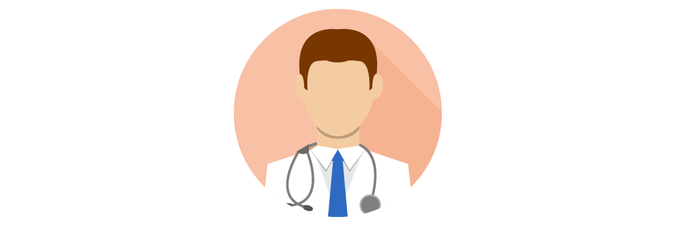
- there is a ban on hospital visits to people in acute care beds, with the exception of the presence of the father at the birth, visits to children and patients with limited legal capacity and patients in the final stages of terminal illness
- attendance at the birth is allowed only if several conditions are met: the child's parent or a person living in the same household as the parent, the birth takes place in a separate delivery room or box with its own sanitary facilities, contact with other parents is avoided, the temperature is taken before admission and must be below 37.0 degrees Celsius, the child must not have symptoms of covid-19 disease, and a surgical drape (not cloth) is used as a minimum
- visits to nursing homes and other residential social service facilities are permitted. In addition to a respirator of at least FFP2 or KN95 class, a negative test for covid-19 is also a condition.
Arrival in the Czech Republic
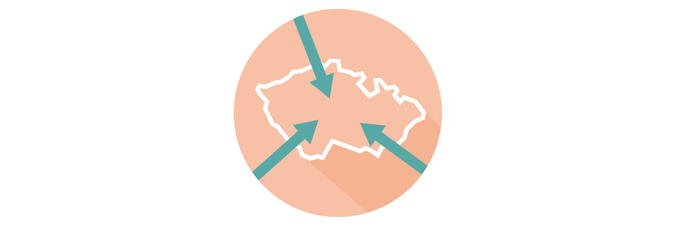
- foreigners are prohibited from staying in the Czech Republic if they have arrived after 30 January for a reason other than those permitted by the exceptions (e.g. employment or business, supplies, necessary trips to visit family, urgent official business, attending a wedding or funeral, etc.) or if they have arrived in breach of a protective measure issued by the Ministry of Health
- a person who has stayed for more than 12 hours in the last 14 days in countries not on the list of countries at low risk of covid-19 must complete an online arrival form before entering the Czech Republic and submit to an RT-PCR test at their own expense within 5 days of entering the Czech Republic. For essential travel (not for recreational, skiing, entertainment, etc.), the ability to travel without completing the form and submitting to the test is extended from 12 to 24 hours.
- When crossing a state border, a person must be screened for signs of covid-19 and if confirmed, must cooperate with health officials in collecting a sample
- in the event of any signs of incipient illness (in particular increased temperature, cough, shortness of breath, indigestion, loss of smell, general weakness or other symptoms), the person must immediately report this remotely (e.g. by telephone or e-mail) to their GP
Full texts of all measures are published on the Government website or Covid Portal covid.gov.cz
The article is taken from the information portal Aktuálně.cz



